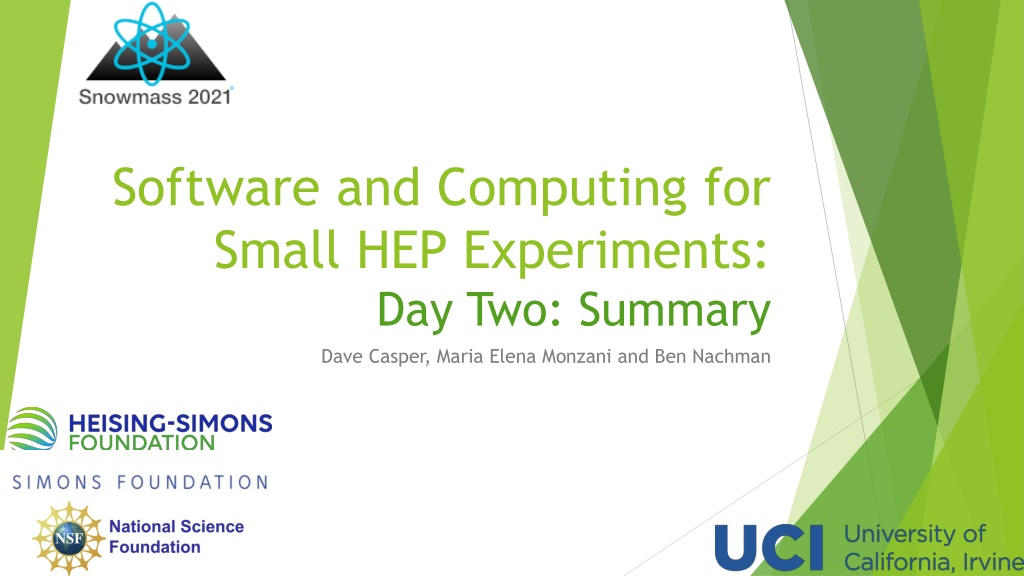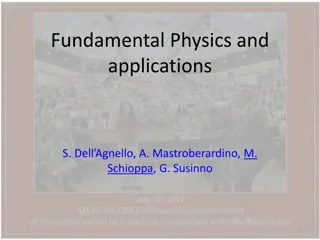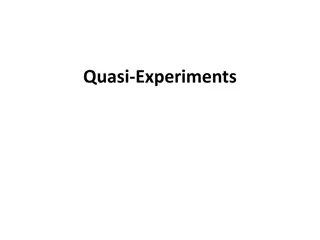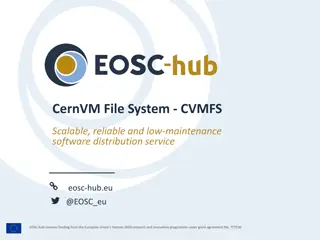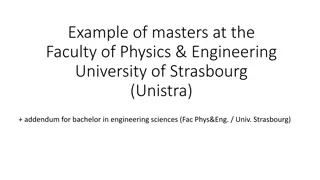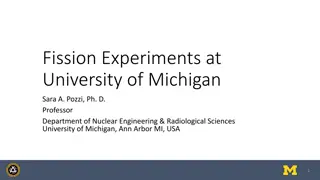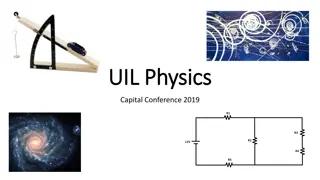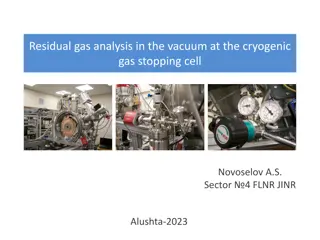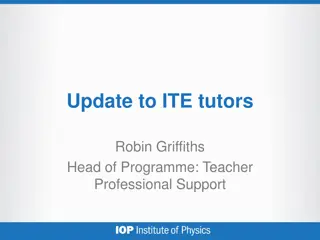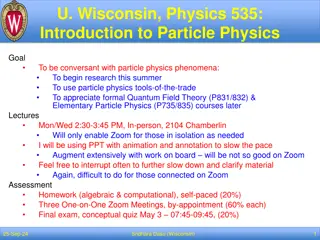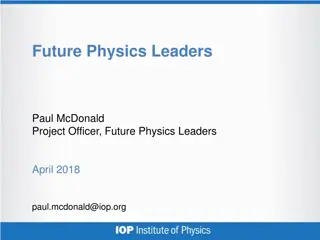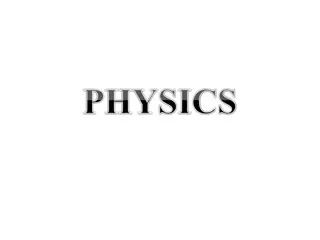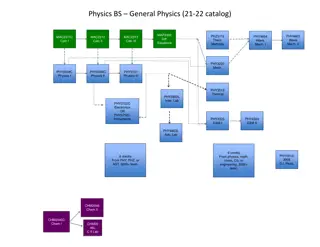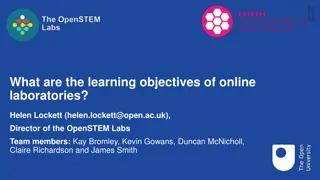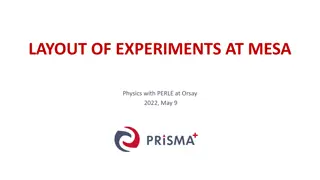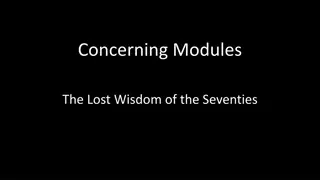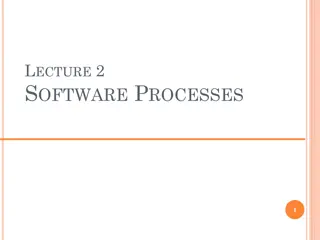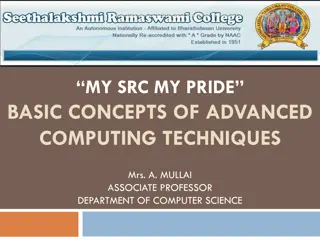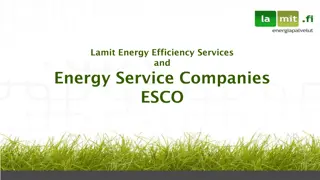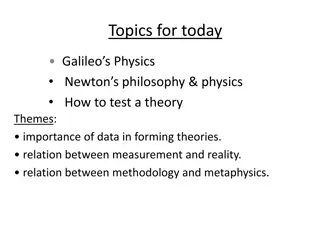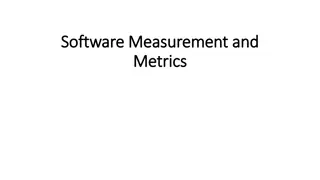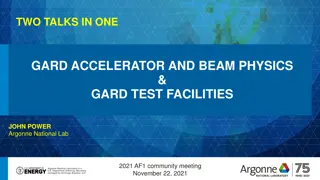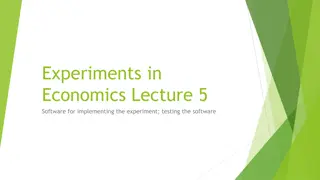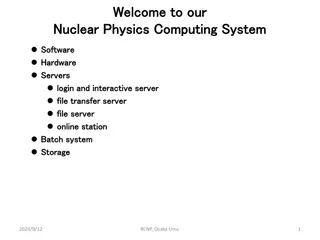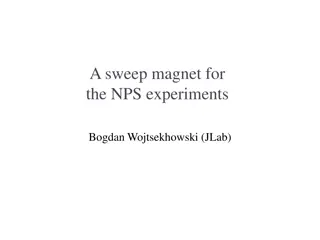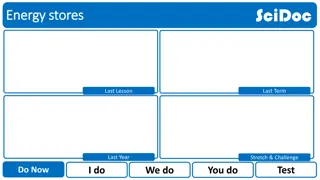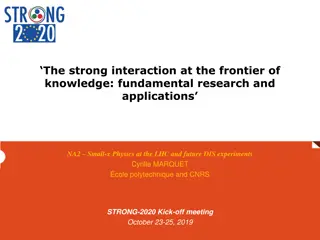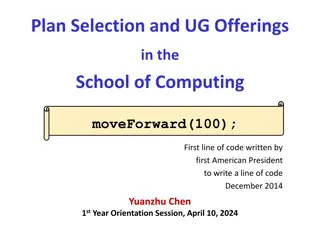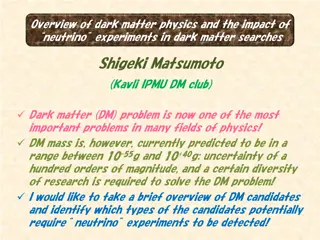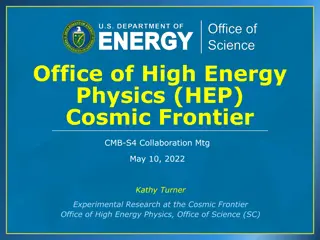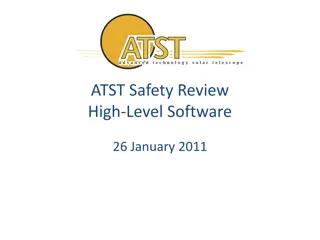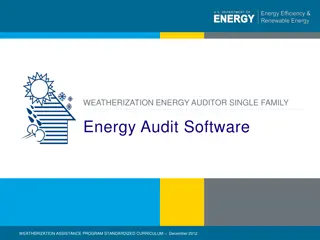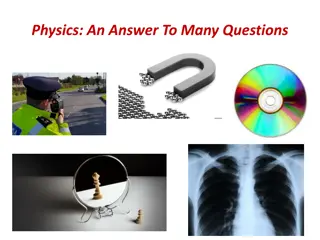Software and Computing for Small High-Energy Physics Experiments: Insights and Trends
Day two of the workshop highlighted the importance of software re-use, success stories of the HEP Software Foundation, significance of high-performance computing facilities, open-source advocacy, community engagement, and ongoing technological revolutions in the field. Key points emphasized the collaboration between researchers, the need for adaptable tools for evolving architectures, and the shift towards GPU, Python, and machine learning applications.
- Software development
- High Energy Physics
- Open-source advocacy
- Community engagement
- Technological revolutions
Download Presentation

Please find below an Image/Link to download the presentation.
The content on the website is provided AS IS for your information and personal use only. It may not be sold, licensed, or shared on other websites without obtaining consent from the author. Download presentation by click this link. If you encounter any issues during the download, it is possible that the publisher has removed the file from their server.
E N D
Presentation Transcript
Software and Computing for Small HEP Experiments: Day Two: Summary Dave Casper, Maria Elena Monzani and Ben Nachman
Benefits of software re-use HEP Software Foundation successes in a number of projects HPC Superfacilities to share development and support resosurces Small experiments do not have smaller requirements and require the same full-featured frameworks as much larger experiments Successful deployment of generalized tools like LArSoft and ACTS into production Generators are inherently experiment-agnostic; GENIE widely adopted in neutrino community Geant4, with curated physics lists Diffusion of machine learning methods to diverse applications Community should strongly advocate open-source software in HEP
People are essential HSF do-ocracy model After common tools created, must be supported and/or adapted to new architectures Benefits to engagement of users with improvements and development of new features Foster and support Research Software Engineers specialized in creating more robust and performant software Also training in software development for physicists Funding agency support for key infrastructure elements like frameworks, Geant4 (and its models), and generators is vital HPC computing revolution is being led by a very small cadre of experts Generational C++ vs python cultural divide
Multiple revolutions are underway Migration from experiment-specific code to reusable community tools Migration from CPU to GPU Migration from C++ to python Domain-knowledge based algorithmic analysis to machine-learning
The Big Picture Over to Ben
